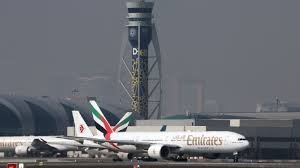When you live in a place that’s always on the move — a global crossroads like the UAE — there’s an unspoken trust between travellers and airports. That trust was tested recently when a sudden wave of airspace closures across parts of the Middle East disrupted air travel routes, leading to unexpected delays and diversions. But instead of panic, what unfolded at Abu Dhabi and Sharjah airports was a remarkable story of teamwork, preparation, and grace under pressure.
This is a closer look at how the UAE’s aviation hubs navigated an anxious situation and kept passengers informed, reassured, and moving forward.
The Unexpected Morning Advisory That Changed Travel Plans
It was an ordinary weekday morning when the advisory from Abu Dhabi International Airport and Sharjah International Airport dropped into inboxes and social feeds. Both airports issued updates warning travellers of possible delays and cancellations due to temporary regional airspace closures.

While no one likes to hear about flight disruptions, the transparency of the announcements was widely appreciated. The advisory urged passengers to check the status of their flights before heading to the airport and to stay in touch with their respective airlines. This simple yet timely heads-up helped ease a lot of uncertainty for families, business travellers, and tourists alike.

Behind the Scenes: How Airport Teams Rose to the Challenge
While most people only see the passenger-facing side of airports, behind the scenes, there’s an army of operations managers, air traffic controllers, security staff, and customer service agents working together like clockwork.
At both Abu Dhabi and Sharjah airports, staff worked around the clock to adjust schedules, reroute flights, and coordinate with airlines. Air traffic controllers closely monitored regional airspace updates, ensuring aircraft were safely rerouted or held on the ground as needed.
In the terminal, additional customer service staff were dispatched to information counters, helping confused travellers find answers and alternative travel arrangements. Special care was extended to elderly passengers, families with young children, and those with medical needs. It’s moments like these that reveal the human heart of aviation — far beyond the technology and infrastructure, it’s about people looking after one another.
Passenger Reactions: From Frustration to Gratitude
Initially, as with any disruption, there was understandable frustration. Some passengers feared missing important events, others worried about visa expirations or tight connections in other countries. But the swift communication and calm professionalism of the airport staff quickly turned emotions around.
Travellers took to social media to share their experiences — some recounting how a ground staff member personally escorted them to a new boarding gate or how a security officer offered water and a reassuring word.
For one elderly couple from the UK, returning home after visiting family in Abu Dhabi, the disruption could have meant an exhausting ordeal. But with assistance from airport staff, their flights were rearranged, and they were provided with lounge access while they waited. “It’s the little acts of kindness that mean the most in situations like these,” they said.
Why Airspace Closures Happen — And Why They Matter
Though such closures are not everyday events, they do happen from time to time due to regional tensions, military operations, or natural factors like volcanic ash or severe storms. In this case, regional airspace restrictions were put in place as a precautionary measure.
For safety reasons, aircraft cannot fly over certain zones, which means air traffic controllers have to redirect flights, resulting in longer routes, delays, or cancellations. The UAE sits at the crossroads of major air corridors between Europe, Asia, and Africa, making it particularly sensitive to such disruptions.
Abu Dhabi and Sharjah airports both have crisis management protocols that kick in during such events, ensuring safety remains the top priority while minimising disruption as much as possible.
How Technology Helped Keep Everyone Connected
One of the unsung heroes in the recent disruption was technology. Both airports used their official apps, social media platforms, and website updates to keep travellers informed in real-time. Airlines sent SMS and email alerts about schedule changes, while digital flight boards at the airports were promptly updated.
Travellers praised the efficiency of the communication. “I knew about my delay while I was still having breakfast at my hotel,” one passenger remarked. “It saved me the hassle of rushing to the airport for no reason.”
This blend of digital tools and human empathy is what made the difference in how the disruption was managed. It’s a reminder that in today’s world, technology isn’t just about convenience — it’s about connection, reassurance, and transparency.

Sharjah Airport’s Unique Position in the Crisis
While Abu Dhabi is one of the UAE’s largest airports, Sharjah International Airport has a distinct role as a hub for budget airlines and cargo flights. During the disruption, Sharjah faced the additional challenge of managing a high volume of low-cost carriers, many of whose passengers might not have immediate access to digital updates.
Sharjah’s airport team increased their on-ground presence, offering announcements in multiple languages and ensuring that information desks were fully staffed. Airport shuttles were arranged for diverted flights, and waiting areas were kept comfortable with refreshments.
For Sharjah residents and the expat community, the airport’s handling of the situation reinforced its reputation for personalised service and community focus.
Lessons in Resilience: What Travellers Can Learn
For many passengers, this event served as a gentle reminder of the unpredictability of air travel. Even with all the planning in the world, things can go off-script. But it also highlighted the resilience of the aviation community and the importance of staying calm, informed, and kind to one another.
Travellers who had made use of online check-ins, real-time flight trackers, and travel insurance found themselves better prepared to handle the disruption. It also proved the value of arriving at the airport a little earlier than usual and keeping essentials — medicines, chargers, snacks — handy in cabin baggage.

UAE Aviation’s Commitment to Safety and Efficiency
Both Abu Dhabi and Sharjah airports have built their reputations on being efficient, passenger-friendly, and safety-focused. Their handling of this situation underscored those values.
In a statement, airport authorities reassured passengers that safety remained their absolute priority, and they would continue to work closely with government bodies, airlines, and regional partners to manage the evolving situation.
Even with temporary airspace closures, the UAE’s commitment to aviation excellence never wavered. Passengers witnessed firsthand the efforts that go into maintaining that standard — a well-oiled machine with a deeply human core.
The Human Moments That Made the Difference
Perhaps the most powerful stories from the disruption were the small, human ones. A young couple missing their honeymoon flight were offered lounge access and rerouted flights. A group of transit passengers, stranded for hours, were treated to complimentary refreshments and a city tour by an airline.
Airport staff sang birthday greetings to a child whose family’s connecting flight was delayed. A security officer comforted an anxious first-time flyer from East Africa.
These aren’t isolated incidents — they are part of the culture of hospitality deeply woven into the UAE’s identity, especially in times of uncertainty.
Looking Ahead: Preparing for a More Flexible Travel Future
As travel resumes normal operations, this incident has left behind valuable lessons for both the industry and travellers. Flexibility, empathy, and clear communication are no longer optional in the world of air travel — they’re essential.
Airlines and airports are now investing even more in passenger communication tools, AI-powered scheduling systems, and multilingual customer support. Passengers, in turn, are becoming savvier about staying informed and travel-ready for sudden changes.
The UAE’s airports, once again, proved that even in times of disruption, their world-class service and people-first approach set them apart on the global stage.
Do follow UAE Stories on Instagram













